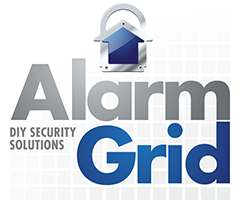18/4 Alarm Wire
Alarm system wiring is essential to have around if you regularly work with security systems. Whether you're a professional installer or just a DIY user setting up your own system, it never hurts to have around. And if you're looking for a great, versatile wiring option to stock up on, then 18-4 wire might be perfect for you. This wire type of actually ideal for making 4-wire connections, which are commonly used with powered hardwired sensors. This includes devices like motion sensors, smoke detectors and carbon monoxide sensors.
Alarm Grid recommends 18-gauge wire when setting up alarm systems. This wire thickness offers a nice balance of maximum run length capabilities and ease of connectivity. It is thick enough to support a long-distance wire run, yet thin enough to make consistent and secure connections. If you have to choose one thickness, then 18 AWG is probably your best option. Both DIY users and professional installers alike achieve great results with 18-gauge wire. If you do prefer something a little thinner, then we have 22 AWG wire available on our site as well. But if you aren't sure of what to get, just go with 18 AWG.
The term "four-conductor" for wiring means that there are four inner wires inside the larger cable. This makes the wire most practical for completing 4-wire connections. These are most commonly used with powered sensors. A powered sensor will need two wires for data transmission and two wires for power. If you go to install a hardwired motion or a 4-wire life-safety sensor, then you will find that you want four-conductor wiring around to complete the job. Otherwise, you would have to double-up on two-conductor wiring, which can be inconvenient.
Of course, there are many applications that only require two connections. In these situations, the logical option is to use 2-conductor cabling. But you can actually use 4-conductor cabling without issue. Just leave two of the inner wires unused and disconnected. They will be fine just hanging out there. The inner wires are color-coded, so you shouldn't mix them up. Many users perform this practice without issue. However, you can also get separate 2-conductor wiring if you want to keep things neater.
Alarm Grid offers stranded wiring, which is perfect for cutting, splicing and bending as needed. DIY users can set up the wire without worrying about breaking or damaging it. And most professional installers also prefer stranded wire for alarm systems, as it is just all-around useful. We offer wiring products from Genesis, a company owned and operated by Resideo. Formerly known as Honeywell, Resideo has deep roots in the security system industry. The company knows the importance of using good wiring, and they always offer a top-quality product. With Alarm Grid and Genesis, all your wiring needs are covered!



